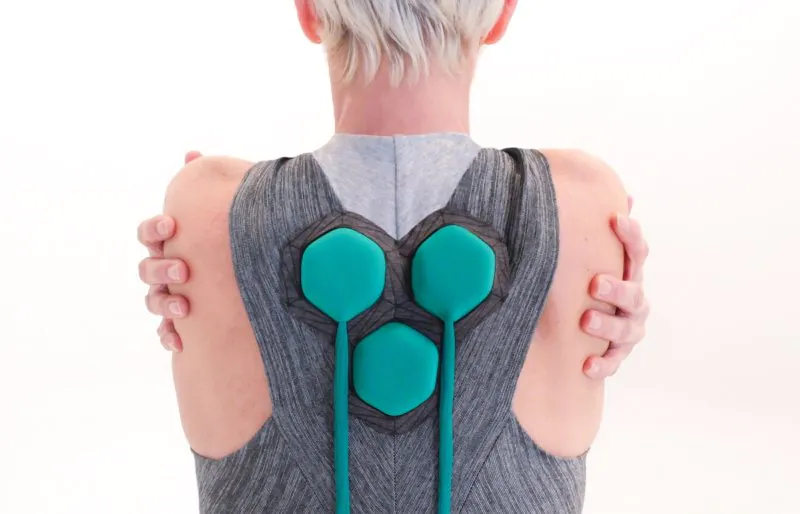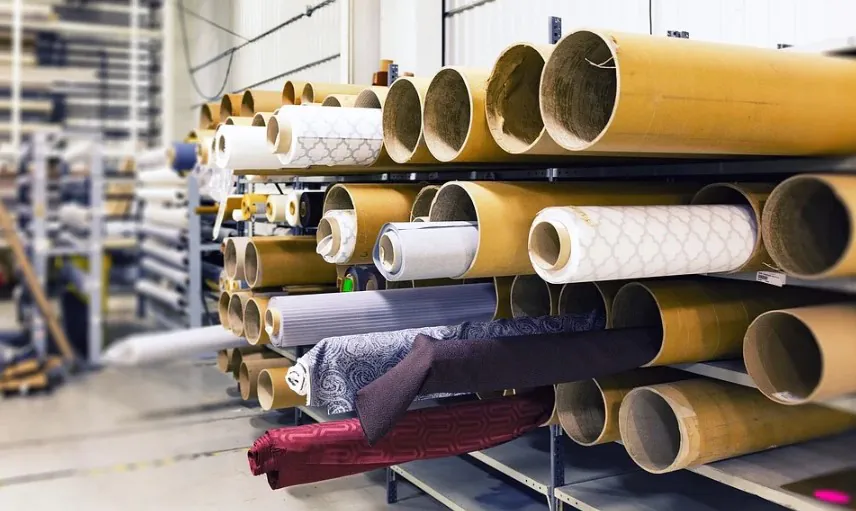
Image/Superflex
Mobility Textiles Changing Lifestyles
Recently, robotics have become more common in the textile industry for sewing, dyeing, and even folding and storage. However, production and assembly of textile and apparel products isn’t the only thing that robots are good for. Robotics and textiles are coming together—literally—to enhance the way we move around the world. More and more robotics companies and textile and apparel companies are collaborating to create functional textiles that have the potential to change the movement and abilities of millions of people around the world.
Wearable Strength for Grandma and Grandpa
The elderly population around the world is growing at a very fast rate. In the US alone, the number of people aged 65 and above is expected to nearly double over the next thirty years, from 48 million to 88 million. Globally, 17% of the population will be aged 65 and over by the year 2050. People around the world are living longer on average—but they aren’t necessarily living healthier lives. Many people in this demographic are faced with mobility issues as their bodies age and require mobility devices and assistance in order to go about their daily lives.
California-based apparel-robotics start-up Superflex has recently introduced a line of exoskeleton suits that enhance a person’s mobility in order to address these issues. The suits are mainly targeted at elderly people to assist them in walking, standing, and climbing stairs, though the technology used to develop the suit was initially intended as part of a program to help soldiers carry heavier loads with less injury.
Each exoskeleton suit, which Superflex defines as “intelligent wearable strength”, is made of thin, body-conforming fabric that is embedded with pods that contain sensors and act as electric muscles. The suit’s configuration is aligned with the wearer’s muscle composition, and the pods are placed on the wearer’s torso, hips, back, and legs. The sensors can detect the movement and posture of the wearer, and the pods add muscle power when necessary. According to Superflex, over time, the suit can strengthen the wearer’s body, lessening their reliance on the technology.
Though the suits are not yet ready to hit the market, when they finally do arrive in 2018, they are expected to be lightweight and almost invisible under clothing. The current prototype weights less than three pounds; the final version will weigh less than that. The suits have the potential to change the future for the elderly population, reducing their reliance on mobility aids like scooters, walkers, and stair lifts.
Mobility Textiles and Disability
Harvard University, in conjunction with robotics company ReWalk Robotics, Ltd., has also been developing a robotic textile suit that its designers intend for use in assisting people with lower limb disabilities. Approximately 15% of the world’s population lives with a disability; 2.2% of the global population has functional or mobility impairments. This textile-robotic suit will have an invaluable impact on the quality of life for these people around the world when it becomes publicly available in the next three years. The suit was developed by a team of roboticists, biomechanical engineers, software engineers, and apparel designers.
Similar to the fabric used in Superflex’s suit, the Harvard-ReWalk collaboration is made from lightweight, non-restrictive, and form-fitting fabric that allows the suit to fit smoothly and comfortably under other clothing. The suit uses powerful actuators compacted into a belt to mimic the biomechanics of the human musculoskeletal system and provide power and stability to the wearer’s lower body.
This suit is more suitable for people with lower limb disabilities as a result of stroke, MS, and minor injuries than patients re-learning to walk and recovering from spinal injuries or paralysis, but the creators are hopeful that it can be used as a jumping-off point to develop similar thin and undetectable suits for patients with more severe mobility issues.
Thousands of World’s leading textile companies can be in your contact list if you register to join BizVibe today! Whether you are looking reliable suppliers, top textile manufacturers, wholesalers and potential customers in over 70 major countries, or finding out what your competitors are buying and which suppliers they’re using, BizVibe can help you reach out to sales prospects and decision-makers in the textile industry across the globe.
Register for free now to build your own network of global textile companies on BizVibe



